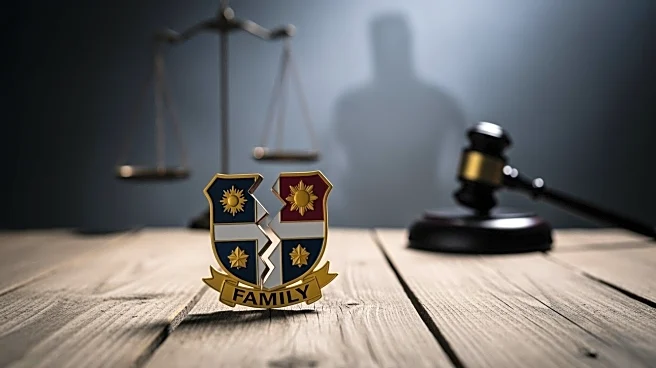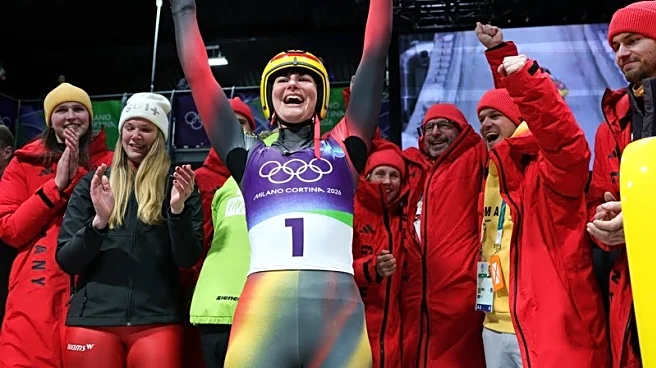What's Happening?
Buster Murdaugh, the son of Alex Murdaugh, has been navigating life after his father's conviction for the murders of his wife and youngest son. Buster testified during the trial, which ended with Alex Murdaugh being sentenced to life in prison. The Murdaugh family,
once a powerful legal dynasty in South Carolina, has been the subject of documentaries and a new Hulu series. Buster, who was expelled from law school for plagiarism, has faced scrutiny due to his family's notoriety. He was involved in efforts to re-enroll in law school, but has since put those plans on hold. Additionally, Buster was connected to a 2019 boat crash involving his brother, Paul Murdaugh, and has denied involvement in the unsolved 2015 death of his friend, Stephen Smith.
Why It's Important?
The Murdaugh family's legal troubles have captivated national attention, highlighting issues of privilege and justice within powerful families. Buster Murdaugh's experiences reflect the broader implications of familial legacy and the challenges of overcoming public scrutiny. His father's conviction and the subsequent media coverage have impacted Buster's personal and professional life, illustrating the long-lasting effects of high-profile legal cases. The family's story raises questions about accountability and the influence of longstanding legal dynasties in the U.S.
What's Next?
Buster Murdaugh's future remains uncertain as he continues to deal with the fallout from his father's actions. His plans to return to law school are currently on hold, and he faces ongoing media attention. The Hulu series may further influence public perception of the Murdaugh family. Buster's ability to rebuild his life and career will depend on navigating these challenges and distancing himself from his family's legal controversies.
Beyond the Headlines
The Murdaugh case underscores the ethical and legal complexities faced by families with deep-rooted power in local communities. It highlights the potential for systemic issues within legal systems where influence and legacy play significant roles. The case also prompts discussions about the media's role in shaping narratives around crime and justice, particularly in cases involving prominent families.

















